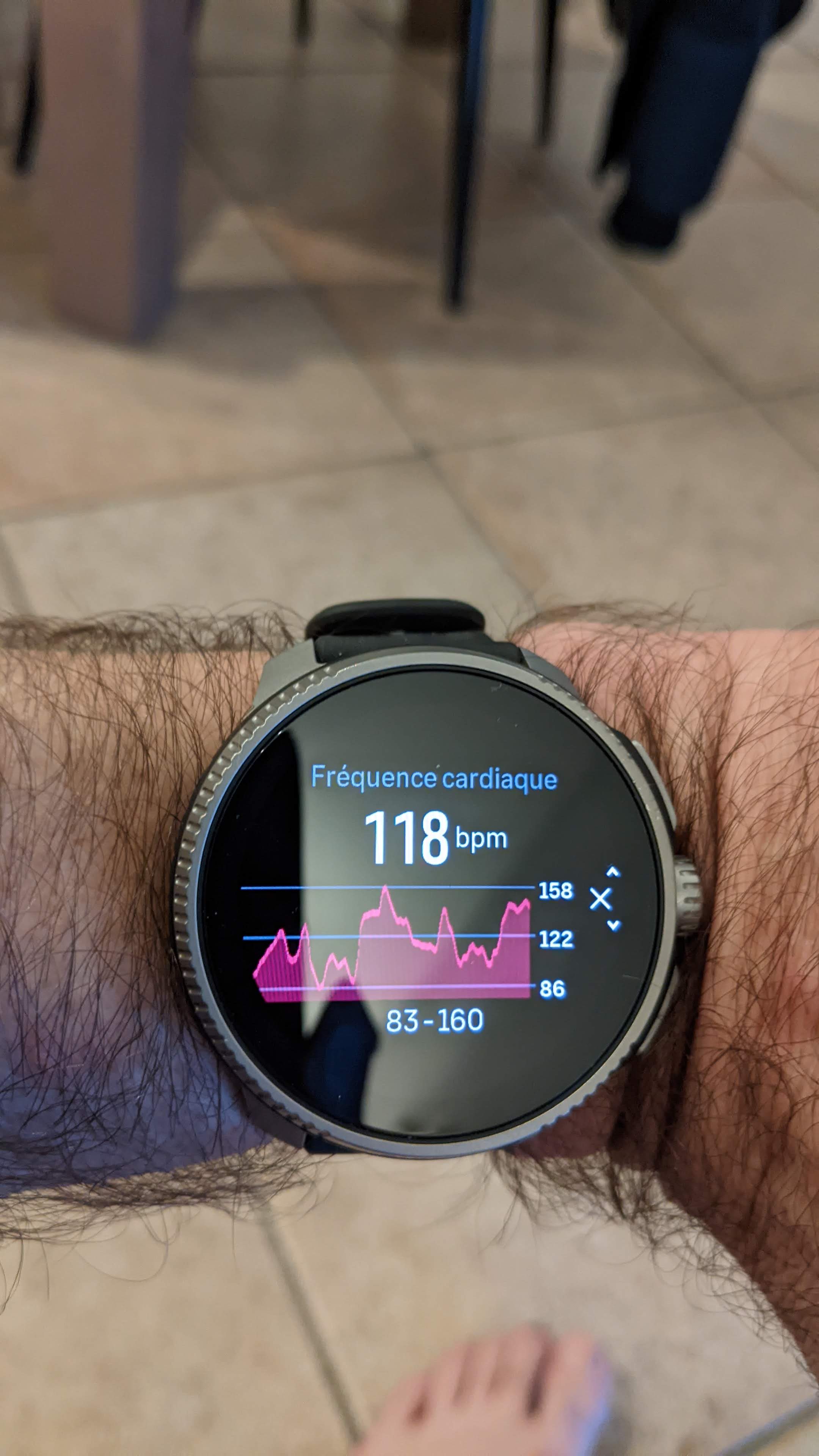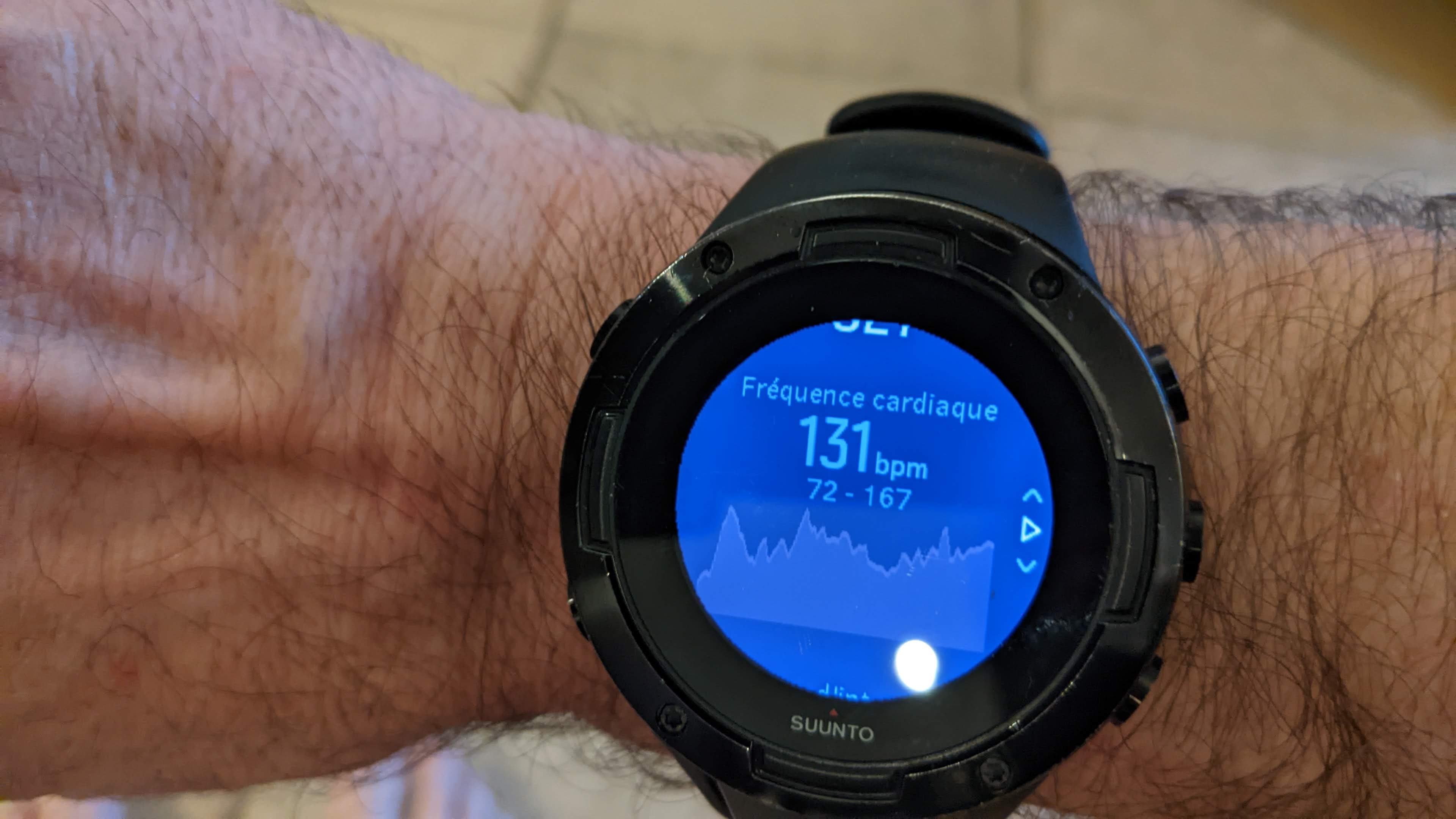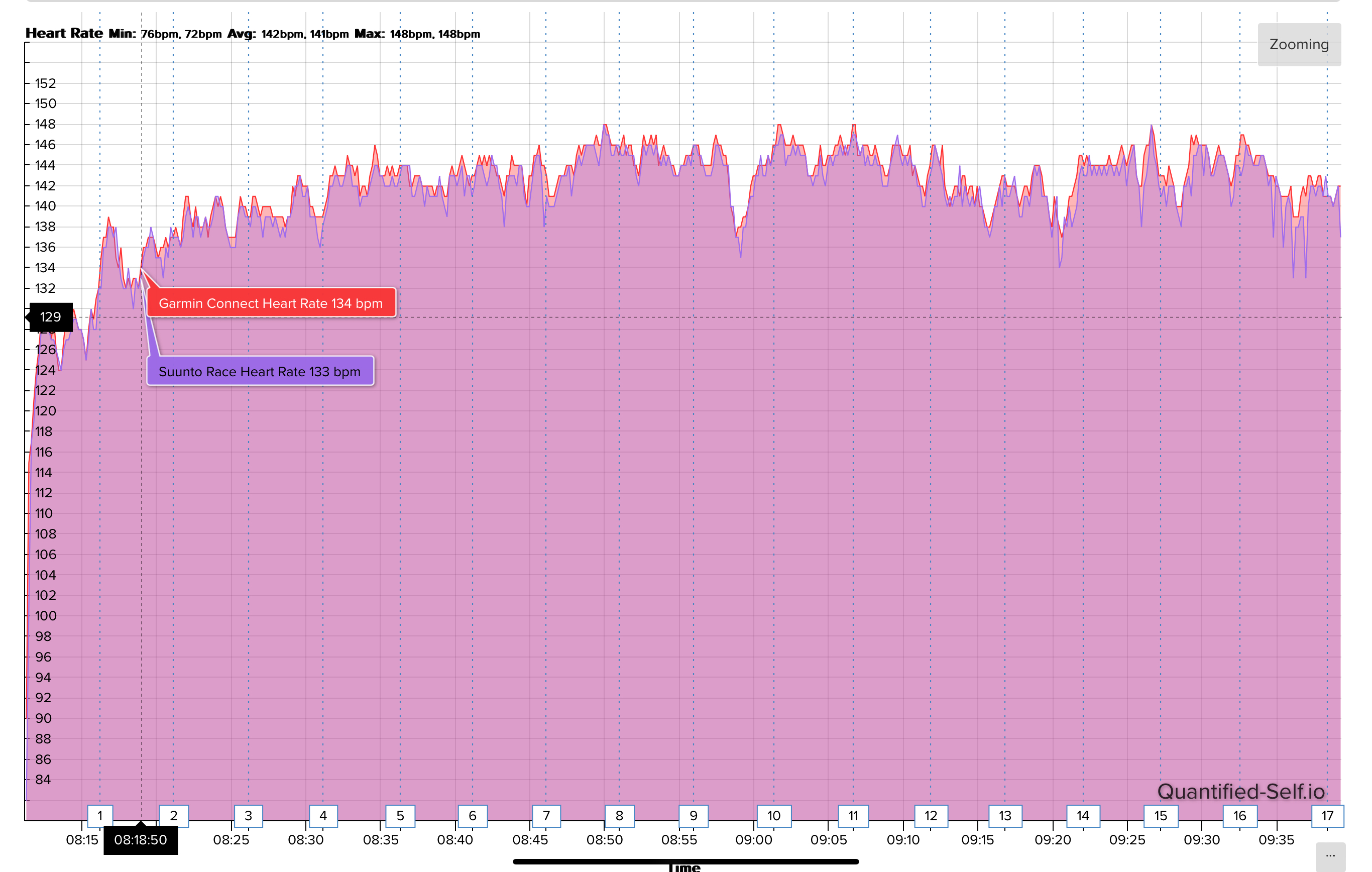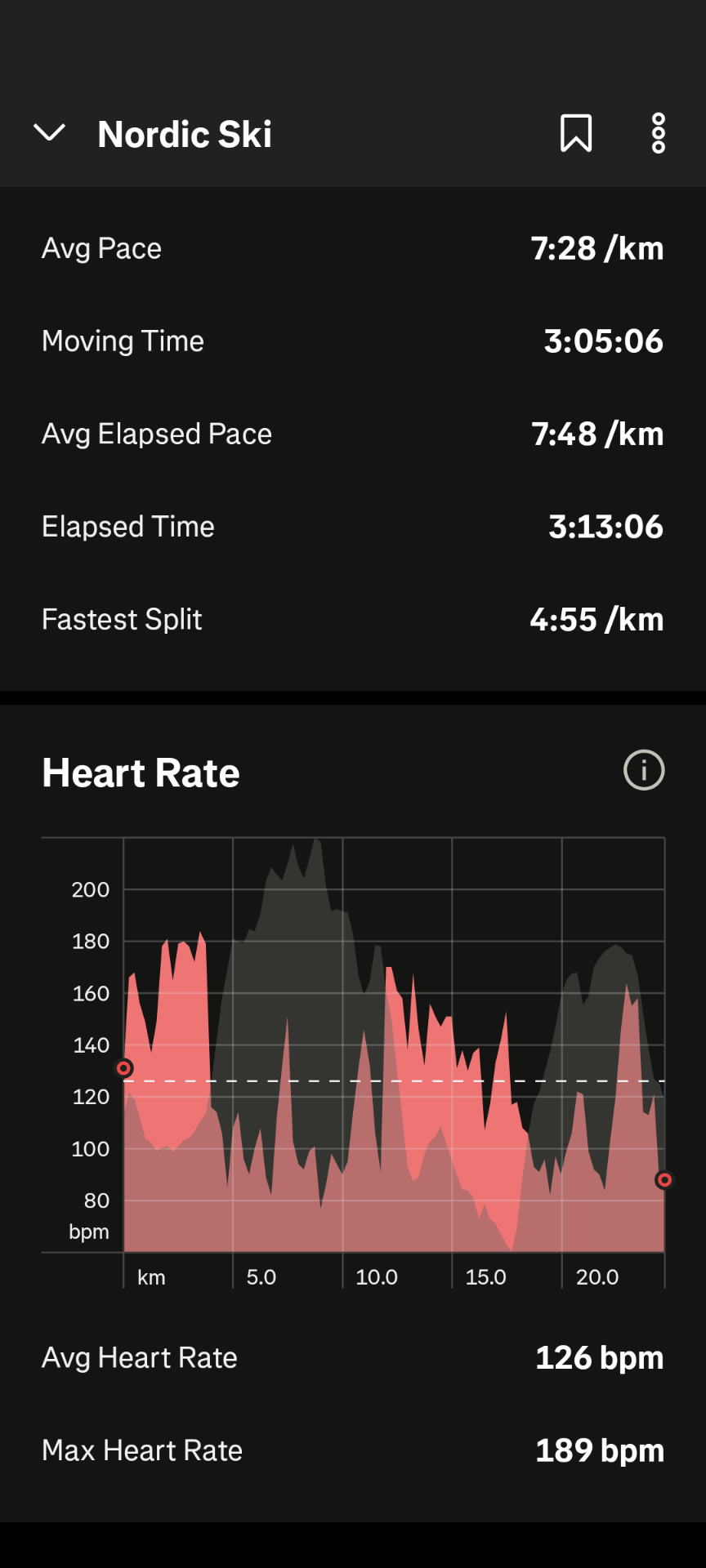HR sensor accuracy
-
@DrSilverthorn with the exception of one blip at the beginning of one run, it’s worked perfectly fine for me. HR for similar runs using Fenix are very close to this (can’t completely compare due to weather/alcohol intake the previous night).
-
ciao a tutti, qualche giorno fa ho provato a fare una comparativa fra garmin epix 2 pro e suunto race, il sensore hr di garmin era in linea con la fascia cardio facendo spinning… il suunto race era invece in grave difficolta’… poi sono un paio di giorni che mi alleno allacciando il suunto race sull’avambraccio e le cose sono sorprendentemente cambiate, in questa condizione riesce a tenere il passo con garmin… posso dirmi abbastanza soddisfatto
-
@carlopievani Not even after translation I could help me understand what changed the accuracy for you

-
@vjakub he change the placement of the watch to forearm and the accuracy becomes better,in line with Garmin epix 2
-
This might interest those who think OHR is accurate.
https://the5krunner.com/2023/11/29/garmin-fenix-6-hrv-vs-polar-h10-hrv-study-shows-the-winner/ -
@Brad_Olwin said in HR sensor accuracy:
This might interest those who think OHR is accurate.
https://the5krunner.com/2023/11/29/garmin-fenix-6-hrv-vs-polar-h10-hrv-study-shows-the-winner/Not really sure what this proves. We all know that chest straps are much more accurate that OHR. This is just some graphs an individual has put together. There’s no scientific input, no controls, and no peer review.
Different OHR sensors work differently for different people and are therefore usable only as a guide. Mine works great for me as a guide. I can certainly tell, without looking at my watch, if my HR is too high or isn’t high enough.
-
@David-l Thanks @Brad_Olwin , and I don’t agree with you at all @David-l .
This study does have the capacity to easily illustrate the difference between a competition medical device, a heart rate belt recognised as the best on the market (H10) and an optical reader, the Fenix 6.
It’s much more scientific than a ‘youtuber’ review like DC Rainmaker, which does interesting practical tests but with a scientific veneer that makes the non-scientist think it’s very scientific and which is in any case incapable of remaining impartial !
I don’t think the point of talking about this article is to excuse the inaccurate measurement of Suunto’s optical readers, or those of any other brand.
If the article can make those on this forum understand that if you want the most reliable measurement possible to be able to interpret all the Suunto indicators, you need the most reliable measurement and that therefore: sport = heart rate belt, that’s already great…And I think it’s time for brands to stop claiming too much about optical readers

Or maybe for Suunto to come out with a heart rate monitor that’s even more accurate than the Polar H10. -
@Arnaud-Lclr said in HR sensor accuracy:
@David-l Thanks @Brad_Olwin , and I don’t agree with you at all @David-l .
This study does have the capacity to easily illustrate the difference between a competition medical device, a heart rate belt recognised as the best on the market (H10) and an optical reader, the Fenix 6.
It’s much more scientific than a ‘youtuber’ review like DC Rainmaker, which does interesting practical tests but with a scientific veneer that makes the non-scientist think it’s very scientific and which is in any case incapable of remaining impartial !
I don’t think the point of talking about this article is to excuse the inaccurate measurement of Suunto’s optical readers, or those of any other brand.
If the article can make those on this forum understand that if you want the most reliable measurement possible to be able to interpret all the Suunto indicators, you need the most reliable measurement and that therefore: sport = heart rate belt, that’s already great…And I think it’s time for brands to stop claiming too much about optical readers

Or maybe for Suunto to come out with a heart rate monitor that’s even more accurate than the Polar H10.Absolutely agree with this point! Just use OHR as a guide

-
@Arnaud-Lclr I’m not sure anyone would consider the5krunner more reliable than someone like @dcrainmaker. Yes, the source of the graphs appears to be from a scientific paper, but there is no direct access to it and little to no context given. If you read the comments, it appears the5krunner didn’t even realize the results were taken while exercising. I think t5k went back and edited the (very short) article to clarify this. He/they even added that "we can’t infer the performance of RR recording at lower levels from thse [sic] results.”
I agree with @David-l that we’re all well aware that OHR, specifically at the wrist, is less reliable than an electrical chest monitor. No news here.
-
Hi guys,
Very interesting readings here. Helps a bit understand my “bad HR sensor” impression since wearing the Race (titanium).
Here are 2 photos taken from the same exercice (small fitness) wearing Race versus good old Suunto 5.
I think I’ll try moving the watch up + resetting and I’ll see.
HR sensor is not 100% a major issue for me but when you put a lot of money on a watch that is supposed to work (and be better than the previous one) you expect something better.


-
@duffman19 I can upload the manuscript if you wish. I have access.
-
Garmin with chest strap suunto on the wrist no major abnormalities.

 ️
️
-
Have my Suunto Peak Pro 9 since January 2024. Almost ever since the beginning, once every couple of workouts (very randomly) I have been experiencing horrible HR sensor accuracy. Let’s say I go for a run - I tend to have very high HR during cardio workouts, so my HR will usually be around 160 or more. Then, all of the sudden, my Suunto will start showing something completely false like 90 or 100. It makes the watch absolutely unreliable.
Below is my Strava screenshot from 25 km nordic skiing competition I participated in recently - it was very heavy workout for me, as you can see from the first couple of kilometeres… and then the HR sensor went down to 80 or 90. sn’t HR measurement one of most important things that a sport watch should do?
It happens repeatedly, randomly and makes the HR measurement, which is a really crucial feature for me, completely unreliable.
I have sent the watch to Suunto service - they said that they ran all the tests and everything works fine, so I should consider buying the Suunto chest strap (!!).
My boyfriend has a Garmin of comparable class and the HR works fine for him. I am extremely disappointed with both the product and the service - this is certainly not the quality I had expected from the brand Suunto. I am definitely not getting another Suunto watch ever again.

-
@AnnaBi If HR is crucial, you need to use a chest strap. Wrist-based monitoring is garbage for sports, regardless of the brand. (It may seem to work at times, but the values are inaccurate, even if some models appear to perform better than others). The wrist-based heart rate sensor is simply not suited for sports but rather for daily tracking.
-
@Ghost as this is true for Suunto, it isn’t for all watches on all brands.
My Epix Pro has really great HR accuracy, unless the software bug hits that prevents it from being. There is almost nothing to gain with a chest strap. I could show you examples, as Garmin records both external and wrist heart rate in the FIT file.
-
@2b2bff I think the reality is that the Optical heart rate sensor on watches in the world is not accurate enough to be comparable to a chest strap with a medical ECG cable.
-
@SODIUM identical - no. Comparable and perfectly usable if you don’t need the last beat? Yes.
As an example: Threshold Run - Epix Pro against HRM-DUAL.
-
@2b2bff said in HR sensor accuracy:
@SODIUM identical - no. Comparable and perfectly usable if you don’t need the last beat? Yes.
As an example: Threshold Run - Epix Pro against HRM-DUAL.
Activity type?
-
@Matúš Running, as I said…
-
I think the fact is that OHR is not reliable for all people and in all circumstances, whereas a chest strap is. One person could use a Garmin with great results and yet be no good with a Suunto or Polar. Someone else could have completely opposite results. The measurement method depends on too many things to be entirely accurate for all people, all of the time for all activities.
For me, Suunto works well, but I still use a chest strap for running and gym activities.
If accuracy matters - and it seems to for most people - buy a chest strap and stop worrying.
